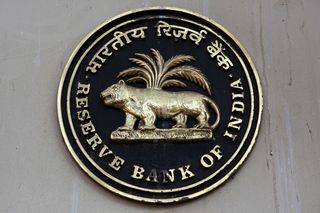India reserve bank compares cryptocurrencies to Ponzi schemes
The bank’s deputy governor said that banning cryptocurrency may be the best option for India

The deputy governor of the Reserve Bank of India has compared cryptocurrencies to Ponzi schemes while providing an assessment of the virtual currency.
T. Rabi Sankar said in a speech this week that cryptocurrencies are not amenable to definition as a currency, asset, or commodity. They have no underlying cash flows or intrinsic value, said Sankar, adding that they are akin to Ponzi schemes, and may even be worse.
He added that cryptocurrencies have specifically developed to bypass the regulated financial system, which should be reason enough to treat them with caution. Sankar underlined that they can, and if allowed most likely will, wreck the currency system, monetary authority, banking system, and in general the government’s ability to control the economy.
Sankar said that cryptocurrencies threaten the financial sovereignty of a country and make it susceptible to strategic manipulation by private corporations creating these currencies or governments that control them.
“All these factors lead to the conclusion that banning cryptocurrency is perhaps the most advisable choice open to India,” suggested Sankar.
He said that it would serve us well if the understanding about cryptocurrencies goes beyond the hype and gets rooted in reason and pragmatism, signalling to global advertisements with themes such as “fortune favours the brave”.
Sankar mentioned that although cryptocurrencies aren’t banned in advanced economies, India is not similarly placed as those economies. Added to this, cryptocurrencies aren’t a threat to convertible currencies as they are to the rupee, which is not an international currency.
Get the ITPro. daily newsletter
Receive our latest news, industry updates, featured resources and more. Sign up today to receive our FREE report on AI cyber crime & security - newly updated for 2024.

Putting the insurance industry back in safe hands
The role of payments in digital transformation
He pointed out that advanced economies also have more mature markets and can withstand the potential disruption from cryptocurrencies, and are in a better position to watch and wait. Furthermore, these economies have quicker legal systems to address concerns of misuse of cryptos can be addressed through these systems.
Advanced economies also have the political power to control crypto companies, with Sankar using the example of the US recovering bitcoins from the hackers of the oil pipeline. He said India or most other countries lack this advantage.
Lastly, Sankar added that concentrated ownership appears to be a characteristic of cryptocurrencies, pointing to a report that stated around 13% of all Bitcoin sits in the hands of just over 100 individual accounts. These are called “crypto whales” and Sankar said makes the system prone to manipulation.
Nigel Green, CEO of deVere Group, told IT Pro that Sankar’s stance could put India on the backfoot and could make it hard to catch up in the future, which it will surely have to try and do eventually.
“Standing on the sidelines on the issue of cryptocurrencies – which are redefining and reshaping the global financial system – is an unsettling approach for a senior central banker in the world’s largest democracy to take,” said Green.
“Cryptocurrenices have already changed the way the world handles money, makes transactions, does business, and manages assets.”
Zach Marzouk is a former ITPro, CloudPro, and ChannelPro staff writer, covering topics like security, privacy, worker rights, and startups, primarily in the Asia Pacific and the US regions. Zach joined ITPro in 2017 where he was introduced to the world of B2B technology as a junior staff writer, before he returned to Argentina in 2018, working in communications and as a copywriter. In 2021, he made his way back to ITPro as a staff writer during the pandemic, before joining the world of freelance in 2022.





